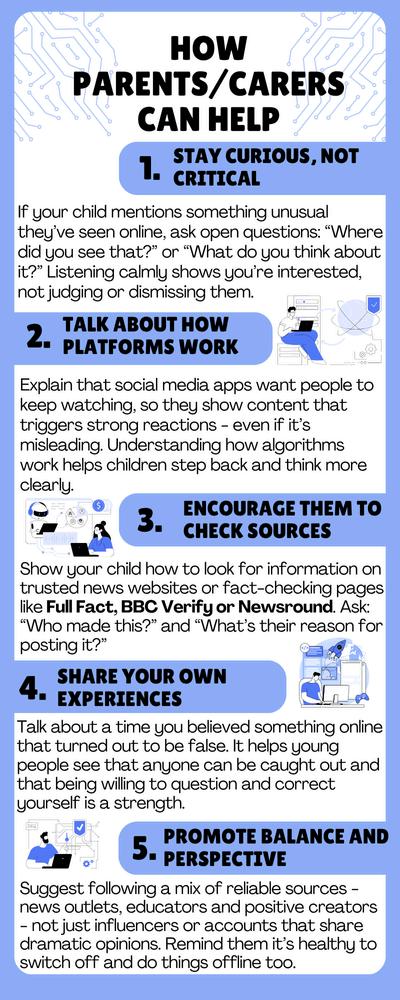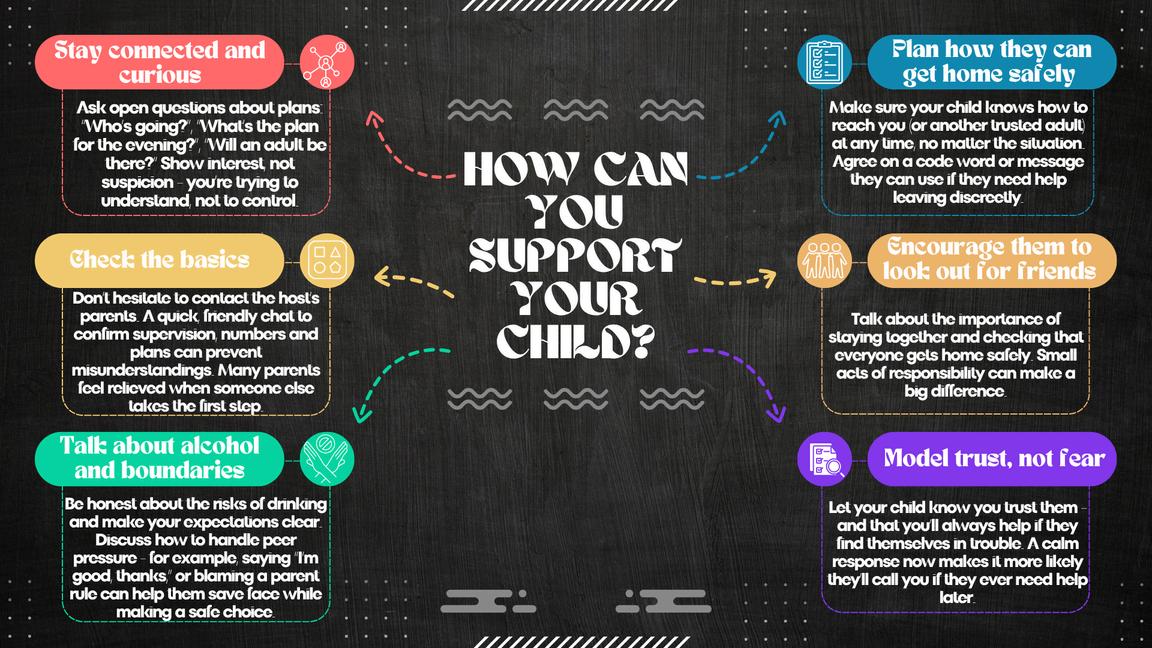
WORKING TOGETHER TO KEEP OUR YOUNG PEOPLE SAFE
Secondary | November 2025
Helping young people think critically: misinformation and conspiracy theories online
Today’s young people are growing up in a world where news, opinions and videos appear instantly - often before they’ve had time to think them through. Social media platforms such as TikTok, Instagram, YouTube and X (Twitter) are now where many children get their information about the world.
What’s the challenge? Not everything they see is true. Some of it is misinformation (false or misleading information) and some are conspiracy theories - such as ideas claiming secret groups or plots are controlling world events. These can spread quickly online, often designed to shock, anger or persuade.
Why young people are drawn in It’s natural for children to explore big questions and look for answers. Online content that sounds bold or mysterious can feel exciting and convincing- especially when it’s presented confidently or emotionally. Apps and algorithms can reinforce this by showing users more of the same kind of content they’ve watched before. For example: TikTok and YouTube use recommendation systems that can lead from harmless curiosity to more extreme or misleading videos. Instagram and Snapchat may spread rumours or fake stories quickly through friends’ posts and private messages.
X (Twitter) and Reddit often mix real news with speculation, which can make it hard for young people to tell fact from opinion. The more time children spend on these platforms, the more normal this flood of conflicting information can feel.
A shared responsibility
If our young people are using social media, we can’t control every video or post our they see, but we can teach them how to question and think critically about it. By staying involved, showing interest and keeping conversations open, parents and carers can help young people grow into informed, thoughtful digital citizens who can tell fact from fiction.
In this issue: Misinformation and conspiracy theories
Unsupervised events

In a world full of loud voices, the ability to pause, question and think is one of the most powerful skills our children can learn.


